#modern history
Text

Lockheed SR-71 "Blackbird"
1K notes
·
View notes
Text
Some thoughts on learning the Holocaust.
There is no scale of suffering, or trauma, or hell. Someone who survived Treblinka and someone who survived Bergen Belsen both went through hell, just different versions of it. Holocaust survivors all experienced variations of hell, from Denmark to Minsk.
But when LEARNING about the Holocaust, it’s extremely normal to learn about it at levels, starting with the least horrifying; which is why, I think, Anne Frank’s narrative has become such a universalized understanding of the Holocaust.
But then you move to transit camps, to internment camps, the ghettos, to Auschwitz, to the Operation Reinhard Death Camps (Belzec, Sobibor, and Treblinka), to the Einsatzgruppen and Babi Yar Level Shit. And every new level makes the old one look less horrifying by comparison.
In that pattern of learning, it’s perfectly rational to say things like OH PLEASE BELSEN WAS NOTHING because you are a student absorbing traumatic history in the healthiest possible way. Saying something like that, as a student of history, is not a judgement on the experiences of survivors; it’s a commentary on sequential learning.
Historiographically speaking, Holocaust survivors and Holocaust historians often mutually fail to understand each other; to the point where survivors actively dislike historians (although soon this sentence will be entirely in past tense, unfortunately). And I’m pretty sure that, for historians of things that happened within living memory, this is an ongoing concern—language of experience and survival vs. language of learning and understanding. I’m not sure where I’m going with this, but I wish we had better language for this chasm.
116 notes
·
View notes
Text
I’ve just learned of a whole new act of genocide against the Navajo people during the Great Depression from this book I’m reading, “A Short History of the World According To Sheep”.
Around half a century after the majority of the Navajo had originally been forced off their land, with millions dying in a forced trek known as “the Long Walk”, and then *finally* allowed to return, the US Government basically declared “they were keeping too many sheep on their land” (which they were *not*; the Navajo bred a stunning variant of the churro sheep breed despite mass slaughter of their animals at the time of the original 19th century genocidal acts, and their husbandry of the land and their animals was reportedly superb, despite it being pretty arid even then) and, despite ongoing legal challenges, enacted a mass slaughter of these churro herds that had been revived with such love, not to mention 10,000 horses.
This destroyed the economy in the area, left the people on the brink of starvation, and broke the hearts of the Navajo.
The Navajo churro breed of sheep was on the edge of extinction until the 1970s. There are apparently still giant heaps of sheep and horse bones lying in ravines where these poor creatures were slaughtered by federal agents. The Navajo still sing mourning songs about it and all the human deaths that followed.
I’ve never even heard of this before. Not even a whisper of it.
The pointless brutality of doing that during a global economic disaster seems cartoonishly evil. And yet, of course, we know that the cruelty was the *point*.
There have been so many acts of genocide against indigenous Americans that something like this as recently as the 1920s can literally disappear. And now, of course, they are threatened just as fatally, if less directly, by climate change threatening to make the Navajo lands uninhabitable.
I cant help drawing comparisons with the IDF burning Palestinian olive groves. Wanton, pointless destruction of the living beings a culture reveres, nurtures, husbands and depends on is not one of the better-known acts of genocide, but it is both materially and spiritually a very real one.
#indigenous people#indigenous rights#navajo#navajo people#cw mass animal death#navajo churro sheep#sheep#cw genocide#palestine#palestinian olive trees#modern history#indigenous american history
124 notes
·
View notes
Text
Your not so friendly reminder that 76 years ago Klement Gottwald "just returned from the Castle".
#čumblr#czech history#“i've just returned from the Castle” was a first sentence of Gottwald's speech#in which he announced that now all the power was in the hands of the communistic party#and it held it for another 41 years#during this time communists managed to murder imprison and destroy careers and lives of countless people#they destroyed the economics and the environment#they destroyed everything they could#communism#history#modern history
103 notes
·
View notes
Text
124 notes
·
View notes
Text
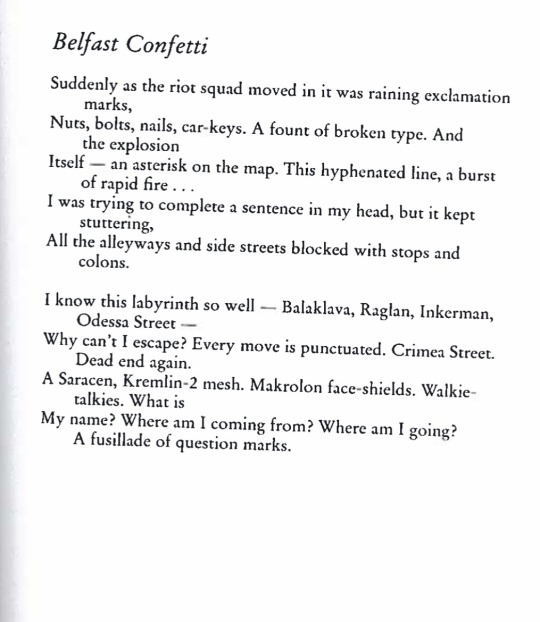
Belfast Confetti
- Ciaran Carson (1990)
#history#irish history#the troubles#poetry#troubles poetry#modern history#Ireland#Belfast#Ciaran Carson#Irish poetry#Northern Ireland
61 notes
·
View notes
Text
#history#ancient history#modern history#medieval#medieval history#renaissance#industrial#industrial revolution#WW1#WW2#Cold War#modern#Q n A#poll#random polls
70 notes
·
View notes
Text
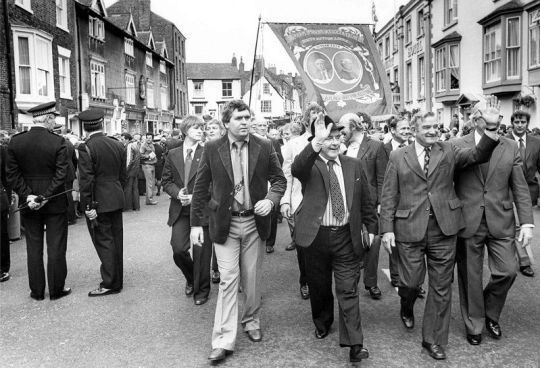

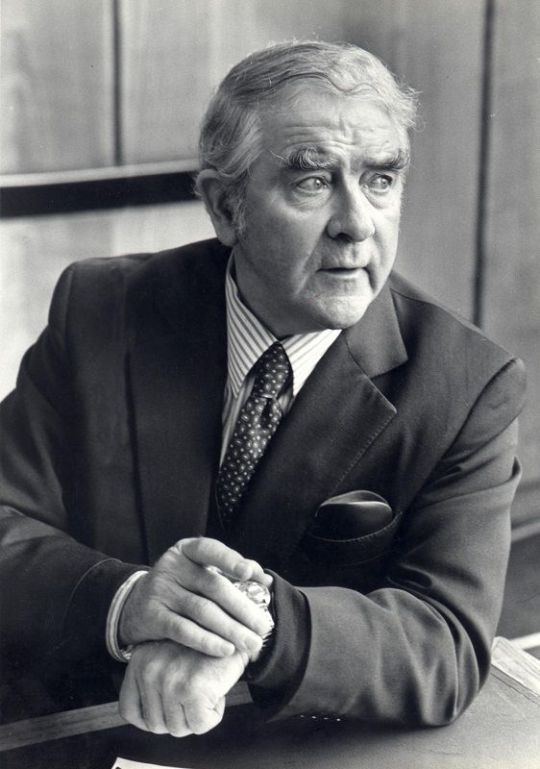
On February 18th, 1981, a BBC headline announced something that would be unthinkable three years later, 'Thatcher Gives in to Miners'.
"…Mrs Thatcher's Conservative Government has withdrawn plans to close 23 pits in its first major u-turn since coming to power two years ago. President of the National Union of Mineworkers Joe Gormley is confident the government's intervention will avert the threatened national miners' strikes…"
After crisis talks in Whitehall between union leaders and Energy Secretary, David Howell, the government agreed to reduce coal imports from eight million to 5.5 million tons and to reinstate higher operating subsidies.
NUM President Joe Gormley stated that as a result of commitments given, he would not be recommending a strike despite overwhelming support for industrial action from within the union membership.
Not everyone was happy;
"…The next day the NUM told all miners to return to work after the executive voted to accept the concessions made by the government and coal board by 15 to 8, with one abstention. Some left-wing pits maintained unofficial stoppages and there were pickets outside the NUM headquarters in London…"
When the government confirmed an injection of 300 million pounds in industry support, the unofficial action was called off and rebel pits were operating again by 20th February. Just over a year later, Joe Gormley secured a 9.3 % pay rise for miners, and was replaced by Arthur Scargill as NUM President.
In a 2002 BBC documentary, a former Special Branch officer claimed that Joe Gormley was a security services informant during the 1970s, having become concerned over the increasing influence within the NUM of left-wing militants.
Arthur Scargill opined,
"…The history of our movement is littered with people in leadership positions who were either connected with Special Branch or connected with the State..."
Joe Gormley was awarded a Life Peerage in 1982, and passed away in 1993.
#social history#uk politics#working class history#social justice#modern history#uk government#british culture#society#uk history#coal mining#coal industry#industrial action#trade unions
25 notes
·
View notes
Note
*peeps my 19 year old head in the door* Why does everyone hate Bush so much? In school (two years ago) all we learned about his presidency was 9/11 and us invading the middle east afterwards, and ... not much else. Did he not invade the Middle east because of 9/11? And wasn't Obama a war criminal too? Why is Bush singled out?
Obama is not a war criminal. That is a disingenuous, bad-faith argument used by the Online Leftists TM who I have often critiqued. There are valid criticisms and questions to be asked about his foreign policy overall, but it is not an actual, definable war crime such as the Bush administration enabled and facilitated in the invasion of Iraq particularly, which was based on thoroughgoing lies about "weapons of mass destruction" and committed widespread atrocities, with the direct knowledge of Bush and members of his administration such as powerful Vice President Dick Cheney. I suggest reading up on Abu Ghraib and its prisoner abuses by the US Army and the CIA, the private military company Blackwater and its mass murders of Iraqi civilians (for which Trump later pardoned them), Guantanamo Bay (Gitmo), and Halliburton, just for a start. These systemic abuses, especially at Abu Ghraib and Gitmo, were explicitly defended by the Department of Justice in the "Torture Memos." Let's not forget Secretary of Defense Donald Rumsfeld, for whom there is an actual legal case to charge with war crimes due to the Bush years. (They can't, because he's dead, but still.)
This should also mention the Patriot Act, the War on Terror, and the other disgraceful large-scale changes that made unprecedented mass surveillance and spying on civilians legal across America, in the name of "fighting terrorism." The war in Afghanistan went on for 20 years, achieved nothing except a lot more atrocities and actual war crimes, and wasn't even relevant to catching Osama bin Laden (who was eventually found hiding in a plushy Pakistani suburb and taken out.... in 2011, by the Obama administration). So yes. There's a lot there for you to educate yourself, and you will see what I mean.
#anonymous#ask#politics for ts#once again i am using words -- ie war criminal -- in the actual legal sense of what they mean#and not by brainwormed leftists#so yes please read what a horror and travesty the entire iraq and afghanistan wars were#and thus you will understand why rehabilitating bush is unconscionable#history#american history#modern history
266 notes
·
View notes
Text
Transgender people have always existed:
They existed in Ancient Rome.
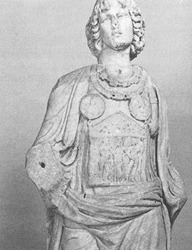
The Galli were a popular cult in Ancient Rome. The cult was composed of AMAB people who castrated themselves and dressed in traditionally feminine clothes. They are comparable to the Hijra of India.
They have existed in India for hundreds of years.
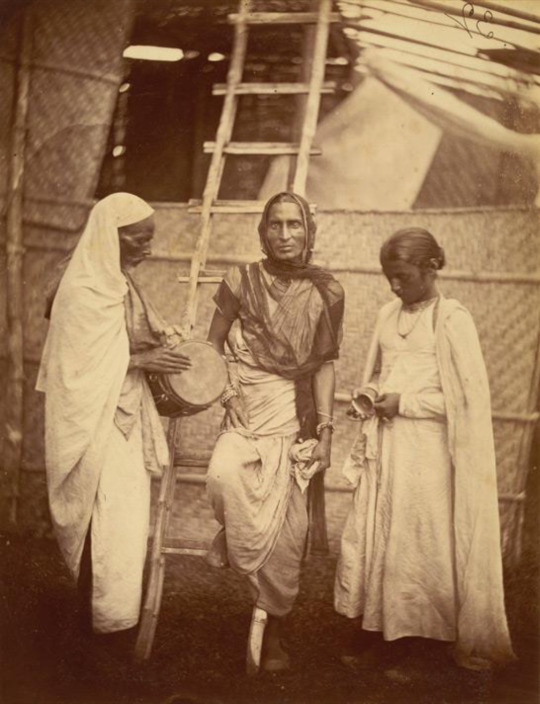
The Hijra have existed in India for hundreds of years. They inhabit a unique third gender which could be described in any number of ways. Before Britain invaded India in the 19th century, they held regular lives and jobs as servants, manual labourers and more. They were persecuted by Britain, who introduced laws to prosecute them for who they were.
Transgender people existed in the 20th Century.
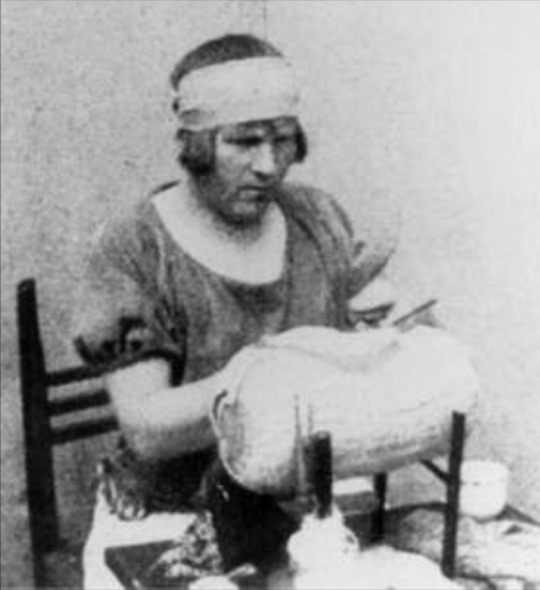
Dora Richter was one of the first people to get gender affirming care in Europe. She underwent surgery at Magnus Hirschfeld's Institut für Sexualwissenschaft.
Transgender people have always been advocated for.
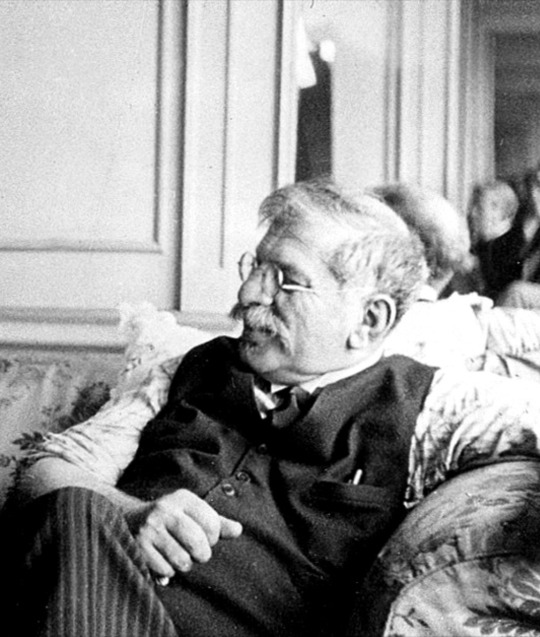
This is Magnus Hirschfeld. He operated the Institut für Sexualwissenschaft until it was raised by the Nazi party. Hirschfeld had been a strong proponent for LGBT+ throughout his life. His entire life work was destroyed by the Nazis, he died in exile in 1935.
This is a march outside of the institute which was organised by Nazis in 1933:
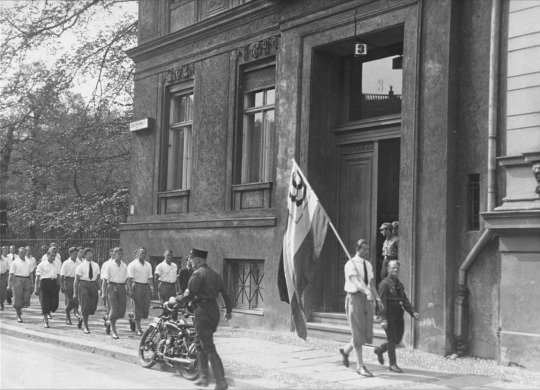
These are Nazi SA members plundering the library of the institute:

Transgender people have always existed:

Michael Dillon, the first man to undergo phalloplasty.

Sir Ewan Forbes, he inherited his brother's estate in 1965 which was contested by his cousin. It went to court and he eventually inherited it. His case was buried in secrecy, so as to not pose a threat to cis men's inheritance rights. It didn't enter common law/become precedent.
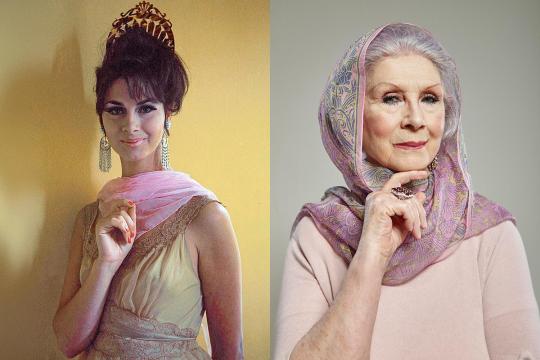
April Ashley, her divorce with her husband in 1969 gained widespread media attention. The decision ended transgender rights in the UK. The judge held that she was in fact a man, gay marriage was illegal at the time and thus her marriage was ended. This decision affected transgender rights massively in the UK, after this transgender people could no longer get legal recognition of their acquired gender.
Transgender people have always existed, to say they haven't is pure ignorance. Whilst transgender people are facing bigotry at every turn, it is important to remember this.
Sources:
All images sources from Wikipedia.
Zoe Playdon, This Hidden Case of Ewan Forbes.
Michael Dillon, Out of the ordinary: a life of of gender and spiritual transitions.
https://en.m.wikipedia.org/wiki/Magnus_Hirschfeld
https://en.m.wikipedia.org/wiki/Institut_f%C3%BCr_Sexualwissenschaft
https://en.m.wikipedia.org/wiki/Hijra_(South_Asia)
https://en.m.wikipedia.org/wiki/Galli
#lgbtq community#lgbtq#lgbtpeople#ancient civilizations#transgender#transrightarehumanrights#trans rights#history#gay#roman history#ancient culture#modern history
126 notes
·
View notes
Text
The word ‘grimoire’ — used to describe a book of spells — led to our modern word ‘grammar’
Christopher Dell, The Occult, Witchcraft & Magic an illustrated history page 11 paragraph five.
#witchblr#witchcraft#witch#baby witch#magic#witch community#magick#history#witchcraft history#witchcraft lore#nature#books#modern history#old history
25 notes
·
View notes
Text
Boeing B -17
1K notes
·
View notes
Text
Do you ever just, MARVEL over how the big three (USSR, UK, and USA) defeated a host of genocidal imperialist powers during WW2 and then just—in between British bankruptcy and decolonization, and early Cold War politics—shot it all to hell for the next century?
80 notes
·
View notes
Text
My Granda, who was born in 1929 and died in 2019, told me often when I was a little kid of the disabled veterans of WWI who lived in his close in Glasgow growing up.
They always told him of the horrifying meat grinder of war and how it was a complete scam; that they were haunted by the men they may have killed - they rarely really knew who they were firing at - who were other working men exploited by other rich egomaniacs.
I know they were a big part of why he joined the Communist Party as a young man, though he left when he saw how they were parroting authoritarian lies from horribly similar exploiters in different outfits in the USSR. He was never diagnosed, but I am 100% convinced my Granda was autistic. I think it’s part of why we got on so well - he was also perpetually unable to deal with doing shit because people with wealth told you so.
I used to talk about socialism and anarchism to him when I was a teen and he did remain hopeful that grassroots movements could still do good and prevent exploitation, and that authoritarianism in the USSR and China didn’t change that.
And he always passed on precisely what the WWI veterans he remembered so strongly told him; “Anyone who talks about war as glory is scamming you.”
#socialism#anarchism#there’s no fucking glory#anyone who talks about war as glory is scamming you#authoritarianism#modern history#family history#working class history#ww1
131 notes
·
View notes
Text
The treatment of the Palestinian people is a dark and evil mark on the pages of modern human history. We like to think of ourselves as more advanced, more humane than our early ancestors. But the face of evil is still alive and prevalent, it hides behind campaigns of freedom and democracy. It wears the mask of liberalism and progressivism.
#Palestine#modern history#evil#Middle East#USA#Israel#Gaza#West Bank#Hebron#nablus#Al aqsa#Palestinian
21 notes
·
View notes
Text
CZ: Takže, poté, co mi jeden kamarád řekl, že nechápe, proč se tak moc slaví 17. listopadu, rozhodla jsem se udělat malé historické okénko, protože stejně ve škole na naše moderní dějiny nikdy není čas a vlastně jsme to nikdy nebrali.
28. října 1939 rozehnali nacisté demonstraci oslavující výročí vzniku Československé republiky. Během tohoto střetu byl těžce zraněn student Jan Opletal a zabit pekařský dělník Václav Sedláček. Jan Opletal zemřel 11. listopadu. Na jeho pohřbu 15. listopadu došlo k další demonstraci a střetu s nacisty. 17. listopadu byly zavřeny české vysoké školy, studenti byli zatýkáni a posíláni do koncentračních táborů, 9 vedoucích představitelů studentské organizace bylo popraveno. Roku 1941 byl díky snaze československé exilové vlády v Londýně 17. listopad prohlášen za Mezinárodní den studenstva.
Přesuňme se o padesát let později. Roku 1989 už komunistickému režimu v Československu docházejí po 41 letech síly, v SSSR je u moci Michail Gorbačov a poměry se uvolňují. Během roku 1989 dochází k několika demonstracím a protestním akcím (jedna z nich, slavící výročí úmrtí Jana Palacha, tzv. Palachův týden, byla obzvlášť brutálně potlačena). 17. listopadu se v Praze na Albertově sešli studenti pražských vysokých škol při příležitosti 50. výročí uzavření českých vysokých škol. Na akci byla skandována protikomunistická hesla, po skončení oficiální části se část studentů vydala do středu města. Policie se je snažila zadržet a zabránit jim v postupu. Ulici Národní třídu policie přehradila. Demonstranti se chovali pokojně, měli jen květiny a svíčky a skandovali: “Máme holé ruce!” Zvláštní složky bezpečnostních složek, tzv. červené barety, ale demonstranty napadly, zbily obušky a pokojnou demonstraci brutálně rozehnaly. Zpráva o tomto násilí se hned druhý den začala šířit, studenti a divadla začali stávkovat, konaly se demonstrace, vzniklo Občanské fórum. Komunistický režim tento tlak nevydržel. 10. prosince byla jmenována 1. vláda, kde komunistická strana neměla většinu a dosavadní prezident Gustáv Husák podal demisi. 29. 12. 1989 byl prezidentem zvolen Václav Havel (kterého komunistický režim naposledy zatkl v říjnu 1989).
Takže proto slavíme 17. listopadu. Pro jiné země to může být “jen” Mezinárodní den studenstva, ale pro nás je to den, kdy se naši předkové vzepřeli a ukázali, že mají odvahu a že svobodu a demokracii budou hájit. Je to den, kdy bychom si měli uvědomit, že jestliže oni nám vybojovali svobodu a demokracii, my musíme tyto hodnoty zachovat a dále budovat. Díky za pozornost.
EN: So, after one of my friends told me, that they don’t understand why we celebrate 17th November so much, I decided to create a post about our modern history, which we never have the chance to talk about at school because we don’t have time to do so.
On October 28, 1939, the Nazis broke up a demonstration celebrating the anniversary of the Czechoslovak Republic. During this clash, a student, Jan Opletal, was seriously injured and a bakery worker, Václav Sedláček, was killed. Jan Opletal died on 11 November. At his funeral on 15 November, another demonstration and clash with the Nazis took place. On 17 November, Czech universities were closed, students were arrested and sent to concentration camps, and nine leaders of the student organisation were executed. In 1941, thanks to the efforts of the Czechoslovak government-in-exile in London, 17 November was declared International Student Day.
Let's move on fifty years later. In 1989, the Communist regime in Czechoslovakia is running out of steam after 41 years, Mikhail Gorbachev is in power in the USSR and conditions are easing. During 1989, several demonstrations and protests took place (one of them, celebrating the anniversary of Jan Palach's death, the so-called Palach Week, was particularly brutally suppressed). On 17 November, students from Prague's universities gathered at the Albertov in Prague to mark the 50th anniversary of the closure of Czech universities. Anti-Communist slogans were chanted at the event, and after the official part of the event was over, some of the students went to the city centre. Police tried to detain them and prevent them from advancing. The street Národní třída was blocked by the police. The demonstrators behaved peacefully, carrying only flowers and candles and chanting, "We have bare hands!" However, special forces of the security forces, the so-called Red Berets, attacked the demonstrators, beat them with batons and brutally dispersed the peaceful demonstration. News of this violence began to spread the very next day, students and theatres went on strike, demonstrations were held, and the Civic Forum was formed. The communist regime could not withstand this pressure. On 10 December, the first government was appointed, where the Communist Party did not have a majority, and the incumbent president, Gustáv Husák, resigned. On 29 December 1989, Václav Havel (who was last arrested by the communist regime in October 1989) was elected president. So that is why we celebrate November 17.
For other countries it might be "just" International Student Day, but for us it is the day when our ancestors stood up and showed that they had courage and that they would defend freedom and democracy. It is a day when we should realise that if they won freedom and democracy for us, we must preserve and build on these values. Thank you for your attention
#czech history#history#international student's day#czech#česky#české dějiny#moderní historie#modern history#čumblr
175 notes
·
View notes